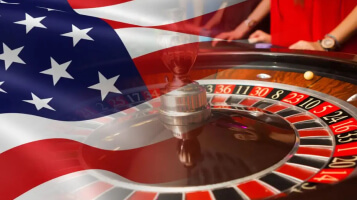The acknowledgement of gambling in the United States has been long discussed and highly confrontational because of those involved. Something that once seemed an absolutely strict business has a detailed, per state legal framework attending to its growth. Besides official and economic concerns, systematic formation is not only essential to the processes of the legalizing of gambling. In the U.S., gambling legalization is deeply interwoven with political agendas, historical contexts, and divides over ideologies. It is with such a political-elite that public policy can be shaped to determine the object’s management within a state territory. This research is about some of the forces and shapes of change that took place during the political process entailing legislation that has yielded these changes.
Historical Context of Gambling Legalization
The United States saw all casinos with horse racing, card games, and recognized gambling as a moral and religious vice with the end of the 19th and the start of the 20th century almost within a decade. Declaring that gambling such as casinos would not be allowed in those states mostly. However, the tide turned in 1976 when casinos were legalized in Atlantic City, New Jersey. For after this point were the 1988 Indian Gaming Regulatory Act and the 1992 Professional and Amateur Sports Protection Act. The latter allowed operation of Native American casinos, while the former provided division of gambling from illegalization. Just as with the repeat of the PASPA in 2018, many of the states then began abusing franchise benefits through sports betting.
Political Agendas & Gambling Legalization
The perception towards gambling is quite subdued after the days of its total prohibition. And it is true to the Security Founders, who argue that this corruption is already within our politicians’ perceptions.

Conservative Opposition to Gambling
Conservative policymakers, churches, and religious bodies oppose gambling legalization, viewing it as a threat to societal values. They argue that gambling promotes irresponsibility, addiction, and the breakdown of family values. In states like Utah and Hawaii, where conservative views dominate, efforts to legalize gambling face strong opposition. For these lawmakers, gambling is not just an economic issue but a moral and social one. They contend that the social costs of gambling outweigh its economic benefits. The ongoing debate between supporters and opponents continues to influence gambling laws at all levels.

Progressive Support for Gambling Legalization
Most progressive legislators support gambling legalization to boost economic progress, create jobs, and fund services like education and healthcare, viewing it as a revenue source rather than a moral issue. The 2018 PASPA repeal illustrates how political aims shape gambling laws. Conservative states like Texas and Utah oppose the repeal, while liberal states such as New Jersey, New York, and California embrace it for new revenue. Progressive states also prioritize consumer protection, implementing responsible gambling initiatives, addiction counseling, and measures to prevent underage gambling.
The Role of State Governments
Gambling is localized and regulated under state laws in the United States, where each state can decide to legalize gambling. States like Nevada and New Jersey, for example, have legalized gambling and thus have extensive regulations for casino, sports betting, and online gambling. However, others, for example, Utah, and Hawaii, are very much against it. Need for revenue from new taxes tends to most push the idea of legalization, especially when there is a gap in the budget of the state. For example, New Jersey uses its earnings to fund education and infrastructure from its online gambling and sports betting measures, which have generated millions. Moreover, once they are enacted, legalized gambling creates jobs, a key argument in favor of such legislation whenever an economy is seen to be struggling.
The Influence of Lobbying and Interest Groups

Gambling industry is highly influenced by the lobbying activities from bodies like the stickler and very powerful American Gaming Association (AGA). Such groups push for legalizing gambling both on state and federal levels. AGA is more inclined to cutting and pasting laws that are beneficial to the industry. Usually this was through the mounting coffers of political fundraising and contributions that would make gaming companies ecstatic over illegal gaming resultants. It may also bring the issue to the fore of political agendas when financially applied. Conversely structures opposed to gambling lobby for control or prohibition. Such organizations argue in favor that the societal costs like addiction, crime and the destruction of families are more than the benefits that accrue from the generation of revenue from gaming.
The Future of Gambling Legalization
The legalization of gambling in the various states will have sound arguments placed for and against, in favor of and against. With increasing online gambling, sports betting, and daily fantasy, states now begin looking to provide sufficient regulation on such activities and ensure their legal status.
However, the result of the debate and which side will win politically depends on changing dimensions in public opinion, economic needs, and the conditioning lobby groups. More conservative-leaning states would probably try and shut any further growth out, while the more liberal ones under existing laws would try to bring stronger arguments for a broadly cited contradiction. As the United States is presently engaged in trial-and-error with laws on gambling legalization, one thing is obvious that the politics is going to foremost affect the future development on American gambling.
Summary
Since political ideology, history, and economic demand of the state greatly influence gambling legislation in the U.S., the political debate about gambling is about so much more than just profiting from it; it concerns moral issues, the public good, and the freedoms of an individual. The thirst for legalizing gambling ever so grows; hence, states that are financially strapped will continue to cast their political will to sway the regulation of gambling activities and the categories of gambling allowed. To lend clarity to the complex and ever-changing world of gambling laws, one should be able to understand the political forces that go into play.
Read Articles

The Legal Status of Gambling in the U.S. by States
Gambling laws across the U.S. continue to evolve, with each of the 50 states having full authority to regulate its own gambling activities. This has resulted in a patchwork of restrictive rules and regulations. While most states now have a more open attitude toward gambling, meaning the sale, consumption, and promotion of cannabis and pot are now legal, other areas remain heavily restricted, either limiting certain forms of gambling or banning them altogether.
Read More
Effective Ways to Limit Gambling Using Self-Exclusion Tools
Certainly, gambling can be fun and considered entertainment when played responsibly. However, some people may have realized that gambling and taking risks have started to negatively affect them. This always indicates a need to stop gambling and to help gamblers correct their mistakes, as well as to recognize the signs of gambling-related problems. While none of these methods are perfect, self-exclusion is an effective preventive tool that allows individuals to avoid gambling and take time to reflect, ultimately helping them regain control of their actions.
Read More